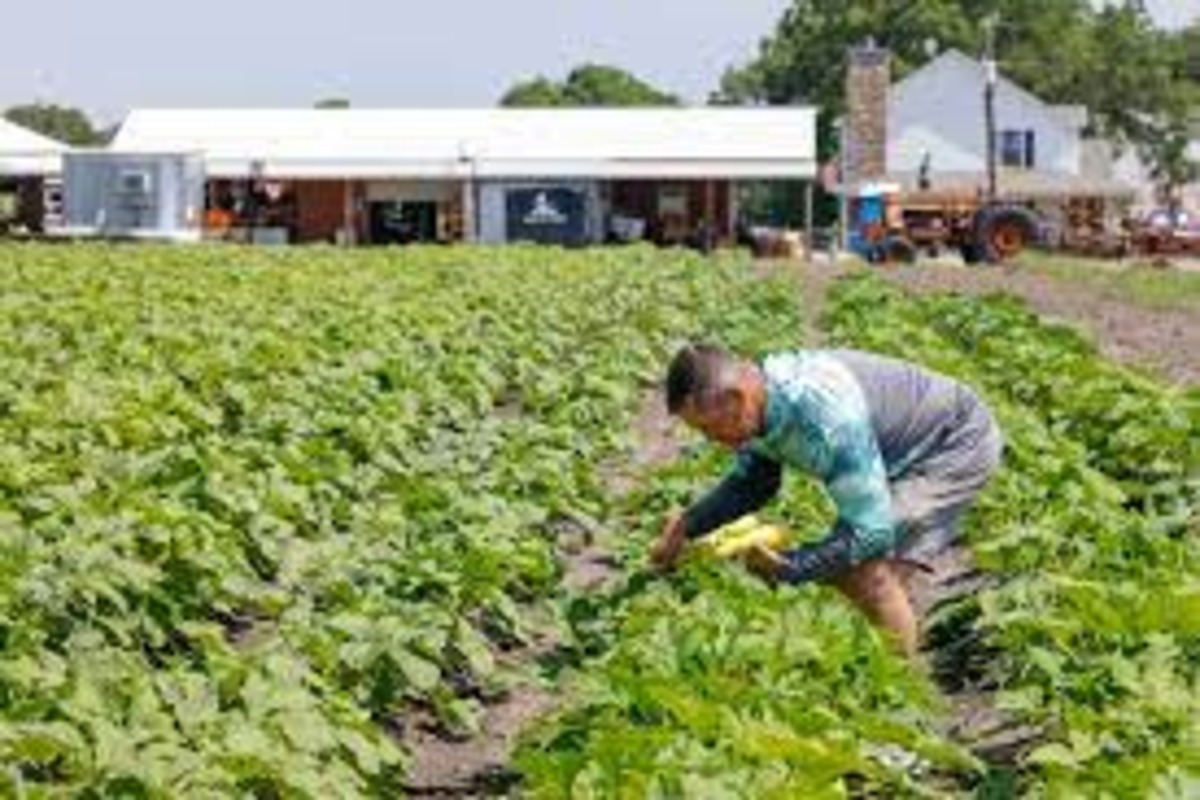Finding a farm close to me is easier than it seems, especially with many local farms offering pick-your-own experiences, fresh produce, and farm tours. These farms often provide direct access to fresh, seasonal food and a chance to connect with nature and local agriculture. Local farms can be found through directories, farm market listings, or community resources that highlight nearby options and their offerings.
Many farms near urban centers not only sell fresh products but also invite visitors to participate in activities like fruit picking, animal interactions, and educational tours. Farms around Montreal, for example, offer varied experiences ranging from organic vegetables to pasture-raised meats, catering to different interests and preferences.
Exploring a nearby farm can provide fresh food options while supporting sustainable farming practices. It also offers a practical way to learn about food production firsthand, making farms an accessible and valuable resource within close reach.
How to Find the Best Farm Close to Me
Finding a farm nearby requires specific tools and careful evaluation. Important steps include using digital resources to locate farms, checking the legitimacy and quality through certifications and reviews, and choosing the right type of farm based on personal preferences and needs.
Using Online Maps and Directories
Online maps and directories provide an efficient way to pinpoint local farms. Websites like Farm Finder Network and the Red Hen App offer geographic searches to locate farms near a user’s location. These platforms often include filters for farm type, operating hours, and available products.
Farm share approximate GPS coordinates or nearby meeting points to protect privacy while still enabling easy pickup or visits. Using tools such as Yelp can also reveal farms currently open and customer ratings. Users should confirm details directly on farm websites or contact owners before visiting, as operating times vary.
Verifying Farm Certifications and Reviews
Not all farms hold the same standards. Certifications such as organic, regenerative, or animal welfare labels ensure certain quality and ethical guidelines. Checking these certifications helps confirm that the farm meets specific production criteria.
Consumer reviews on platforms like Yelp or specific farm directories offer insight into customer satisfaction and farm reliability. Look for recent reviews focused on product freshness, farm accessibility, and customer service. Evaluating this feedback helps avoid farms with poor experiences or inconsistent product quality.
Considering Farm Types and Offerings
Farms differ greatly in both their production and their methods of operation. Some specialize in pick-your-own fruit or vegetables, ideal for seasonal fresh produce. Others may focus on farm-fresh eggs, pasture-raised meats, or offer petting zoos and educational tours.
Depending on interest, buyers should identify farms that match their goals—whether it is direct food purchase, family-friendly experiences, or specialty products. Checking farm websites or directories for detailed descriptions can clarify available products and services, helping to make an informed choice.
Visiting Local Farms: What to Expect
Local farms offer different activities and products depending on the time of year. Visitors can find fresh seasonal crops, shop at farm markets, pick their own fruits or vegetables, and participate in community events. Each farm varies, but most provide opportunities to connect with nature and local agriculture.
Seasonal Crop Availability
Crops vary widely with the seasons. During spring and early summer, visitors will find strawberries, peas, and the first leafy greens. Mid to late summer brings tomatoes, peppers, zucchini, and berries. By fall, pumpkins, apples, squash, and root vegetables become available.
Availability depends on the farm’s size and location. Many local farms update crop availability weekly. Visitors should check farm websites or call ahead to confirm what’s currently harvest-ready. Weather can also affect the timing.
Freshness is a key advantage of buying crops directly from farms. Seasonal produce at these farms usually has not traveled far, ensuring better flavor and nutritional value compared to supermarket options.
Farmers Markets and Onsite Stores
Many farms operate onsite stores or participate in farmers markets. These outlets sell fresh produce, homemade jams, baked goods, and sometimes dairy or meat products. Shoppers can expect locally grown and produced items with limited packaging.
Physical farm stores often carry unique products not found in regular markets, such as heirloom vegetables or farm-made preserves. Markets usually run weekly, especially in warmer months.
Payment options vary; some farms may accept only cash, while others take cards. It’s best to confirm before visiting. Hours can vary, so checking ahead can save time.
U-Pick Experiences
U-pick farms allow visitors to harvest their own fruits or vegetables directly from the fields. This hands-on activity is popular in late spring through fall, depending on crop readiness.
Common U-pick options include berries (strawberries, raspberries), apples, pumpkins, and sometimes vegetables like green beans or peppers. Farms typically provide containers and tools, but some may have restrictions to protect crops.
Prices are usually per pound or per container filled. U-pick farms often have rules, such as closed-toed shoes for safety or no pets allowed. These experiences also offer educational value about how crops grow.
Community Events and Activities
Farm visits may coincide with community events like harvest festivals, farm tours, and workshops. These events offer learning opportunities, hands-on activities, and family-friendly entertainment such as pony rides or petting zoos.
Events usually occur during peak seasons like fall or summer weekends. Some farms open their doors for self-guided tours to show daily operations.
Visitors interested in volunteering or participating in farm-related educational programs should check with the farm directly. These activities can deepen understanding of sustainable farming and local food production.

